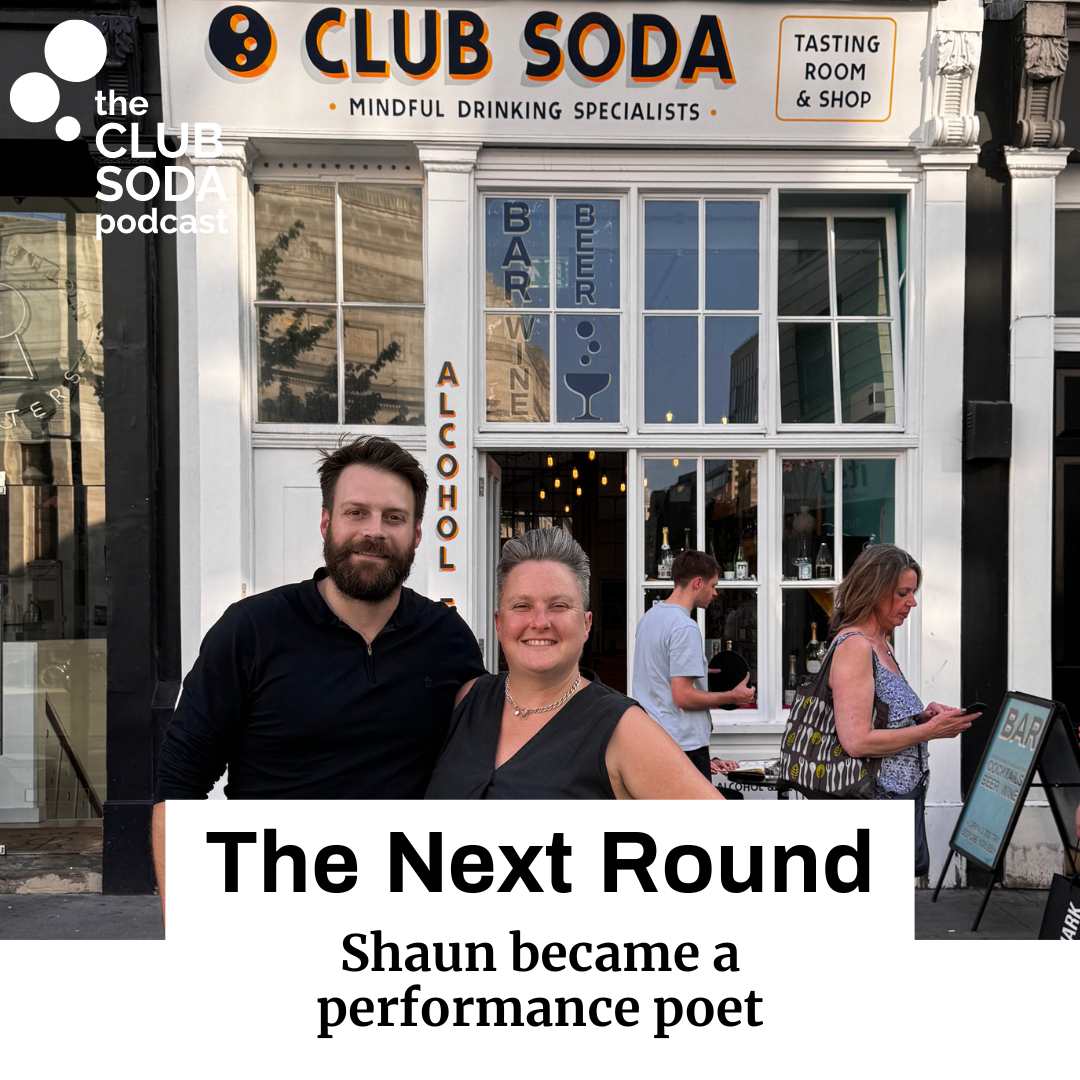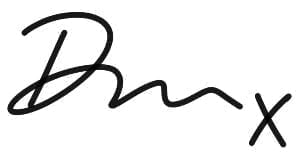
This website uses cookies to improve your experience. We'll assume you're ok with this, but you can opt-out if you wish. Read More
The Next Round: What happens after you change your drinking?


I’ve stopped drinking, and I’m on day 4 with no alcohol. This is the day when I’m feeling good: no more hangover or shakes, heart rate has calmed way down, I’ve woken up feeling fresh, done some exercise, I’m productive working from home. Go me! But this is also the day that I start to think maybe I overreacted. I was too hard on myself. I’ve been so good these last few days. Maybe one little glass tonight as a reward. Why do I feel like I’m in the danger zone? Rachel

First of all, congratulations on your commitment to changing your drinking. Day 4 with no alcohol may feel like a tiny step forward compared to where you want to be in the longer term, but if you’ve been struggling to get beyond day one, it’s a major achievement.
In Club Soda, we don’t think that counting days alcohol-free is a necessary part of quitting drinking. When you really think about it, we only count days when we don’t expect something to last forever. As we explain at the beginning of our course, How to Stop Drinking, rather than keeping track of days, it’s good to focus on your achievements and the benefits of change. Ultimately, it’s feeling good that motivates you to keep going.
Rather than counting days not drinking, focus on your achievements and the benefits of change.
But as you’ve noticed, feeling so good comes with a risk that you forget why you started in the first place. It may be that you’ve been in this position before, weighing up the pros and cons of pushing on against the option of just one drink. Is it ever just one though? If you’ve been in this danger zone before, and want to avoid a repeating pattern of drinking, it’s good to take some time to reflect.
Let’s take a step back to consider what’s going on, and how you can build your motivation for continuing change.
The shakes you experience when you stop drinking are not part of a normal hangover. They are actually alcohol withdrawal symptoms.
It can feel scary to confront this reality, but withdrawal symptoms indicate that you’ve become physically dependent on alcohol. Fortunately, shakes, sweating, headaches and nausea are at the milder end of the spectrum of withdrawal symptoms and will generally pass within a few days. But if these get worse, or you experience more severe symptoms such as seizures, hallucinations, confusion or poor coordination, you must seek medical help urgently. If you’re physically dependent on alcohol, it can be dangerous to stop drinking suddenly, and it’s safer to cut down slowly over time.
However, by day 4 without alcohol, most people will have got beyond any initial withdrawal symptoms. All the alcohol will have left your system by now, and your body will begin to bounce back. If you’re not as focused on alcohol, you may be eating better, drinking water, moving more, and perhaps sleeping more deeply. All these activities contribute to your physical wellbeing at this moment.
Although many people drink to relax, alcohol actually induces a stress response in your body. So you might find that day 4 without alcohol begins to feel a little calmer. There’s certainly something refreshing about feeling clear-headed, and maybe you are feeling more energetic and positive. These are all typical benefits of the mini-break you’ve given your mind by not soaking it in booze.
You’ve been focused on the negatives of drinking, but what are the positives of not drinking?
All this is good. But you’re right to notice that something else is going on. As you slowly get further away from the pain of your last hangover, you may find your motivation to keep going begins to wane. Your brain, like everyone’s, is good at simplifying your memories. And the further you get from an event, the less you tend to remember. And especially if you’ve got feelings of embarrassment and shame related to your last drinking episode, you are going to want to forget the worst parts of what happened.
Like many people starting this journey of change, you’re probably sick of drinking. Tired of hangovers, making yourself unwell, maybe even scared for your health. Perhaps you’ve recognised the negative impact drinking is having on your feelings, your family, your friendships. Maybe you’ve been struggling for a while, wanting to stop but not being able to. Maybe you’re upset with yourself and angry with alcohol.
All of these negative feelings are powerful motivations for change. All these feelings are valid, and all of them can get you started on your journey of changing your drinking.
You’ve got as far as day four without drinking; you can get a little further.
But these initial impulses, these negative feelings that get you to day 4 with no alcohol, are not enough to sustain you. You are going to need some positive motivation too.
Let’s leave aside for a moment whether you can moderate your drinking or not. That question is a diversion at this point. Especially if you’ve been in this danger zone before, you deserve a little time on a clear road before you decide what direction to take. Give yourself some time and space today and in the next few days before you drink again. You’ve got as far as day 4 without drinking; you can get a little further.
As you begin to explore your motivation for change, ask yourself a couple of questions:
Be curious about your answers. There are no right or wrong conclusions to reach. But it’s likely you’ve been focused on the negatives of drinking; it’s time to start thinking about the positives of not drinking.
It’s also important to know that you’re not committing yourself to be alcohol-free forever. Not at this point. You can approach the coming days as an experiment. See how it feels to not drink. Begin to notice the situations in which you feel an urge to have a drink. Pay attention to what happens when you make a different choice.
Alcohol-free drinks can really help in these early days, just swapping out alcoholic drinks in your routine. You may feel an urge to have a drink, but it’s important to know that it’s not an instruction to act. And it may be a craving for sugar as much as alcohol. So look after your body; it’s been through a lot.
You feel like you’re in the danger zone right because you know deep down what’s at stake. But whatever else you do, be kind to yourself right now. Stop piling pressure on yourself. You’ve already done an amazing thing. Now you just have to continue doing what you’ve already done.
Cheers

Dru Jaeger runs all of Club Soda’s courses for people who want to change their drinking. If you are thinking about cutting back, taking a break or stopping drinking, get started with the free course How to Change Your Drinking.
This website uses cookies to improve your experience. We'll assume you're ok with this, but you can opt-out if you wish. Read More
| Name | Domain | Purpose | Expiry | Type |
|---|---|---|---|---|
| wpl_user_preference | joinclubsoda.com | WP GDPR Cookie Consent Preferences. | 1 year | HTTP |
| PHPSESSID | www.tickettailor.com | PHP generic session cookie. | 55 years | HTTP |
| AWSALB | www.tickettailor.com | Amazon Web Services Load Balancer cookie. | 7 days | HTTP |
| YSC | youtube.com | YouTube session cookie. | 55 years | HTTP |
| Name | Domain | Purpose | Expiry | Type |
|---|---|---|---|---|
| VISITOR_INFO1_LIVE | youtube.com | YouTube cookie. | 6 months | HTTP |
| Name | Domain | Purpose | Expiry | Type |
|---|---|---|---|---|
| _ga | joinclubsoda.com | Google Universal Analytics long-time unique user tracking identifier. | 2 years | HTTP |
| sbjs_migrations | joinclubsoda.com | Sourcebuster tracking cookie | 55 years | HTTP |
| sbjs_current_add | joinclubsoda.com | Sourcebuster tracking cookie | 55 years | HTTP |
| sbjs_first_add | joinclubsoda.com | Sourcebuster tracking cookie | 55 years | HTTP |
| sbjs_current | joinclubsoda.com | Sourcebuster tracking cookie | 55 years | HTTP |
| sbjs_first | joinclubsoda.com | Sourcebuster tracking cookie | 55 years | HTTP |
| sbjs_udata | joinclubsoda.com | Sourcebuster tracking cookie | 55 years | HTTP |
| sbjs_session | joinclubsoda.com | SourceBuster Tracking session | Session | HTTP |
| Name | Domain | Purpose | Expiry | Type |
|---|---|---|---|---|
| mailchimp_landing_site | joinclubsoda.com | Mailchimp functional cookie | 28 days | HTTP |
| __cf_bm | tickettailor.com | Generic CloudFlare functional cookie. | Session | HTTP |
| NID | google.com | Google unique id for preferences. | 6 months | HTTP |
| Name | Domain | Purpose | Expiry | Type |
|---|---|---|---|---|
| _ga_10XZMT03ZM | joinclubsoda.com | --- | 2 years | --- |
| AWSALBCORS | www.tickettailor.com | --- | 7 days | --- |
| cf_clearance | tickettailor.com | --- | 1 year | --- |
| VISITOR_PRIVACY_METADATA | youtube.com | --- | 6 months | --- |
Join Club Soda for 10% off your first order of drinks for UK delivery. Plus get our latest news and special offers for members to choose better drinks, change your drinking and connect with others.
If you get an error message with this form, you can also sign up at eepurl.com/dl5hPn